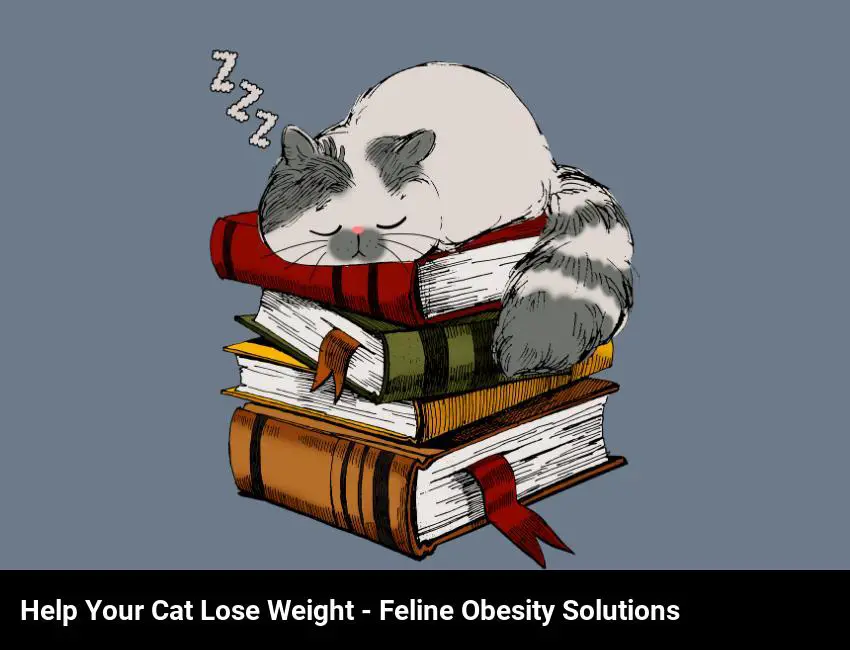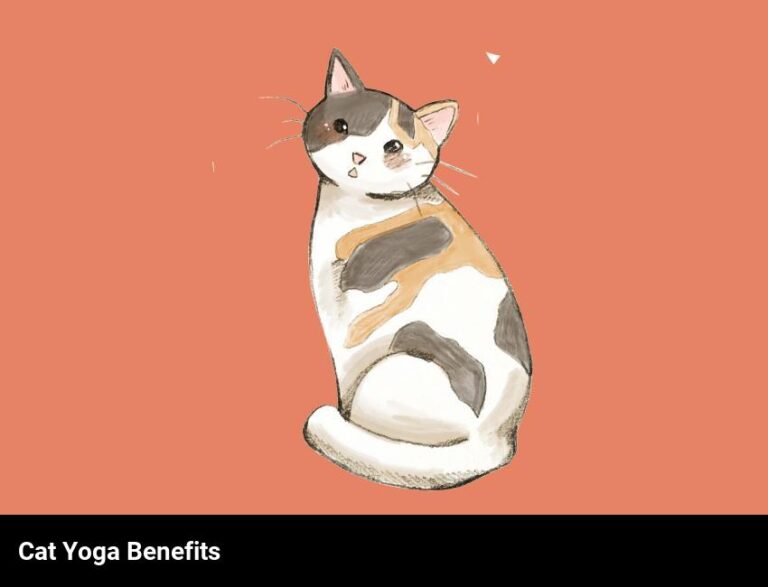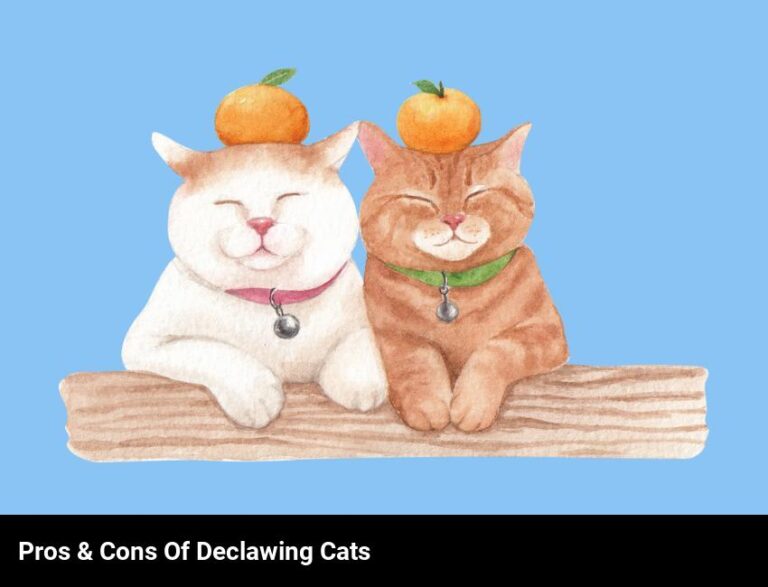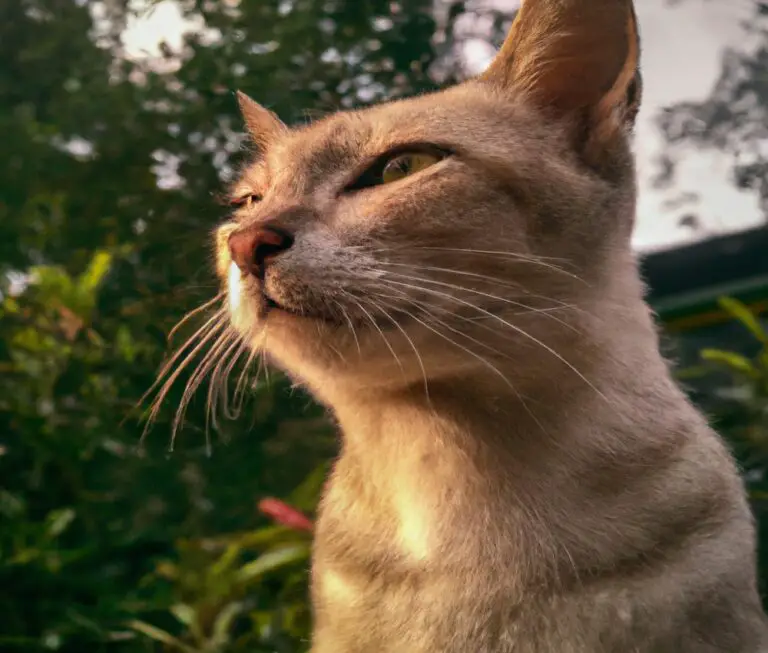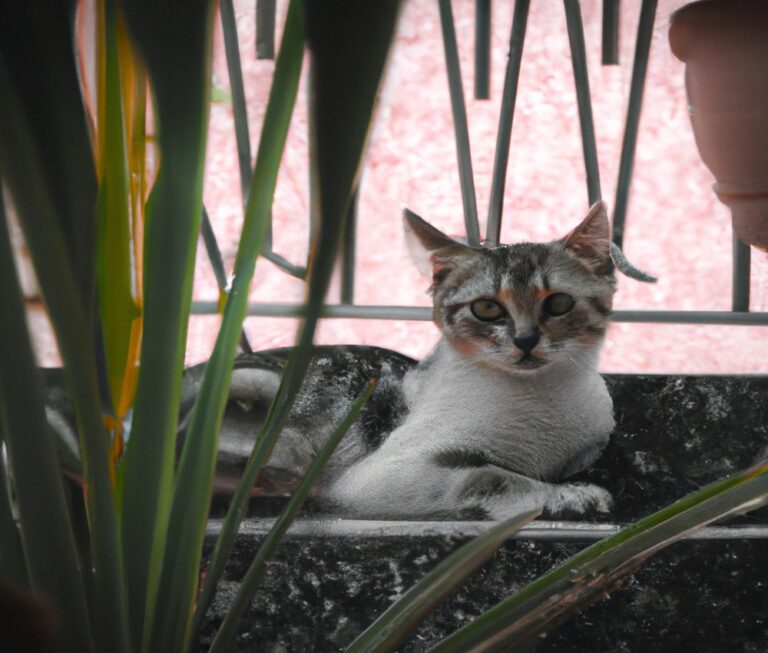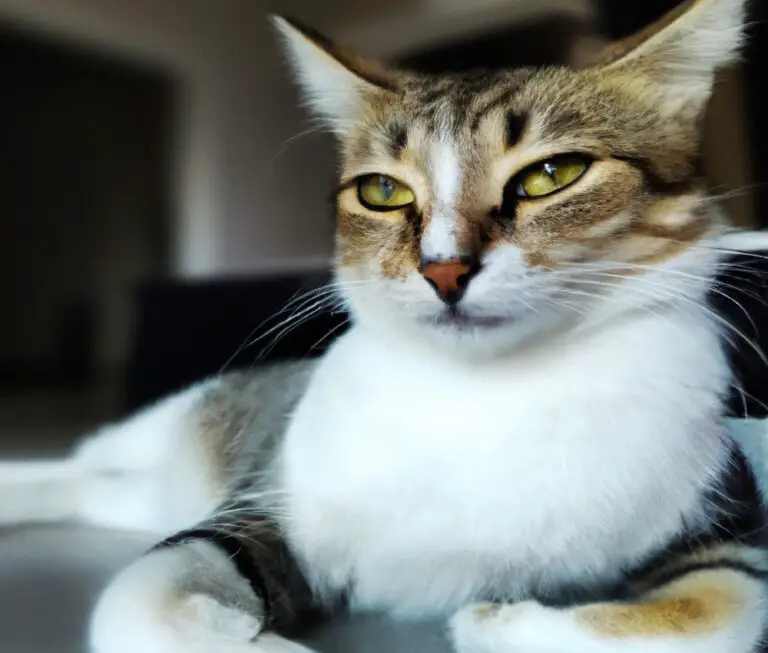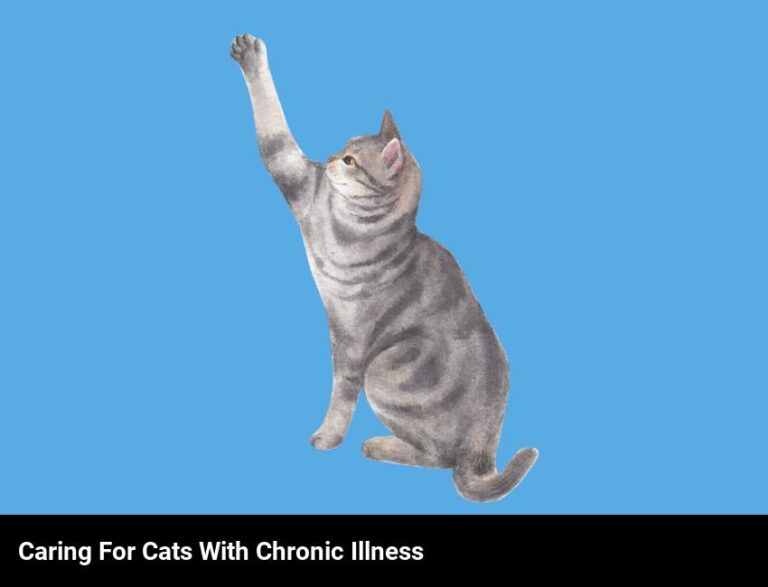Feline Obesity: How To Help Your Cat Lose Weight
Feed your cat a balanced, low-calorie diet and provide plenty of exercise. Monitor your cat’s weight regularly and consult a vet if needed. Avoid treats and table scraps, and measure food portions carefully.
Do you have a cat that’s overweight? If so, you’re certainly not alone. The unfortunate truth is that many cats are overweight, and that extra weight can cause a variety of health problems. But the good news is that there are steps you can take to help your cat lose weight.
In this blog, I’ll be discussing what causes feline obesity, the best diet for cats who need to lose weight, and how you can incorporate exercise into your cat’s routine. I’ll also talk about the importance of monitoring your cat’s progress, and the many benefits you’ll see as your cat begins to slim down.
If you’ve noticed that your beloved feline companion has been packing on the pounds, don’t worry – you’re not alone, and there is hope! With a little bit of knowledge and dedication, you’ll be able to help your cat lose weight and enjoy a healthier, happier life.
What causes feline obesity?
Feline obesity is a very serious issue, and understanding its causes can help you keep your cat healthy. The most common cause of feline obesity is overfeeding; cats require fewer calories than humans, so it’s important to keep portion sizes in check. Lack of exercise can also contribute to weight gain in cats; cats need regular playtime and activity to stay fit and healthy. Lastly, certain medical conditions, such as hypothyroidism and Cushing’s disease, can lead to weight gain in cats.
In order to help your cat lose weight, it’s important to be aware of the causes of feline obesity. Regularly monitor portion sizes, make sure your cat is getting enough exercise, and watch for any changes in your cat’s weight or behavior. If you suspect your cat may have a medical condition that is causing weight gain, be sure to talk to your vet right away. With a bit of dedication and the right knowledge, you can help your cat achieve a healthy weight.
How can you help your cat lose weight?
You can help your cat lose weight in several ways. Start by talking to your vet about your cat’s diet and exercise needs. Your vet can give you custom advice on how to help your cat reach their ideal weight.
Make sure to feed your cat a balanced, high-quality diet. Look for food that meets the nutritional needs of your cat and contains minimal fillers. Avoid giving your cat treats, table scraps, and other human foods.
Provide plenty of opportunities for your cat to stay active. Invest in toys and scratching posts to encourage your cat to play. Spend time each day engaging in interactive play with your cat. This can include laser pointers, feather toys, and anything else that you both enjoy.
Monitor your cat’s weight and adjust their diet and exercise as needed. Also, make sure to visit the vet regularly to check on your cat’s progress. With the right diet and exercise, your cat can reach their ideal weight in no time.
What diet should your cat be on?
Cats should be on a high-quality, moderate-calorie diet. This includes a mix of wet and dry food that’s made with real meat or fish as the first ingredient. The diet should also include plenty of fiber, vitamins, minerals, and essential fatty acids.
It’s important to choose foods that are specifically formulated for cats. Human foods, while they may seem like an easy solution, can be unhealthy for cats. That’s because cats have different nutritional needs compared to humans.
You should also consider your cat’s needs and preferences when choosing a diet. For example, if your cat prefers dry food, choose one that is low in carbs and high in fiber. If your cat prefers wet food, look for one that is rich in moisture and has moderate-calorie content.
It’s also important to monitor what your cat eats. A diet that’s too high in calories can lead to weight gain, so keep portions small and appropriate for your cat’s size and activity level. You can also make sure to provide your cat with plenty of toys and activities to keep them engaged and to keep them from overeating.
Overall, choosing the right diet for your cat is essential for their health and well-being. Choose a high-quality, moderate-calorie diet that is tailored to your cat’s needs and preferences. Monitor their eating habits and provide plenty of mental and physical stimulation to keep them healthy and fit.
What are the benefits of helping your cat lose weight?
Helping your cat lose weight provides a number of benefits to their overall health, wellbeing and quality of life.
- Optimal weight helps to reduce the risk of chronic health problems such as diabetes, heart disease and joint problems.
- Weight loss can also improve your cat’s mobility and energy levels.
- Obese cats are more prone to developing skin and coat problems due to the excess fat making it difficult for them to groom themselves properly.
- Cats that are a healthy weight are more likely to live longer and happier lives.
- Helping your cat maintain a healthy weight can also strengthen the bond between you and your furry friend, as you can enjoy more quality time together.
What exercise routines are good for cats?
If you’re trying to help your cat lose weight, it’s important to include exercise as part of their routine. Exercise is a great way to help cats burn more calories and get more active. Here are some great exercise routines that you can do with your cat:
- Playing Catch: This is a classic game that’s been around for centuries. All you have to do is roll a small ball or toy across the floor and encourage your cat to chase after it. This can be a great way to get your cat running and jumping around.
- Hide and Seek: This is a great way to get your cat to use their natural instincts to hunt. You can hide small pieces of treats around the house and have your cat search for them. It’s a great way for cats to explore their surroundings and get some exercise at the same time.
- Outdoor Exercise: If you have an outdoor space, you can give your cat a chance to explore the outdoors and get some fresh air. Just be sure to keep them safe and supervised.
- Laser Pointer: This is a great way to engage your cat in an active game. Point the laser pointer around the room and watch your cat as they try to catch up with it.
No matter what exercise routine you choose, it’s important to make sure it’s fun for your cat. Exercise should be something they look forward to and enjoy, so make sure to adjust the routine if they seem to be getting bored. With the right exercise routine, your cat will be able to lose the extra weight and live a happier and healthier life.
How can you monitor your cat’s weight loss?
It can be hard to tell when your cat is overweight, but it’s important to monitor their weight if you’re trying to help them lose some pounds. To make sure your cat is losing weight and staying healthy, there are a few key things you should do.
First and foremost, you should weigh your cat regularly. The best way to do this is to weigh them on a regular basis – for example, once a week or at least once a month. Make sure to use the same scale each time and record the weight each time to keep track of their progress.
Second, pay attention to what your cat eats, and how much. Keeping a food diary is a great way to do this, as it will help you identify any potential problems with their diet. Additionally, make sure to provide plenty of water for your cat and plenty of exercise opportunities.
Finally, take your cat to the vet for regular check-ups. The vet can provide helpful advice on how to help your cat lose weight safely and effectively, as well as give you an indication of how much they are losing. This is especially important if your cat has any existing health problems that could be exacerbated by weight loss.
Monitoring your cat’s weight loss is an important part of helping them achieve a healthy weight. By weighing them regularly, paying attention to their diet and exercise, and taking them to the vet for regular check-ups, you can ensure your cat will stay healthy and active.
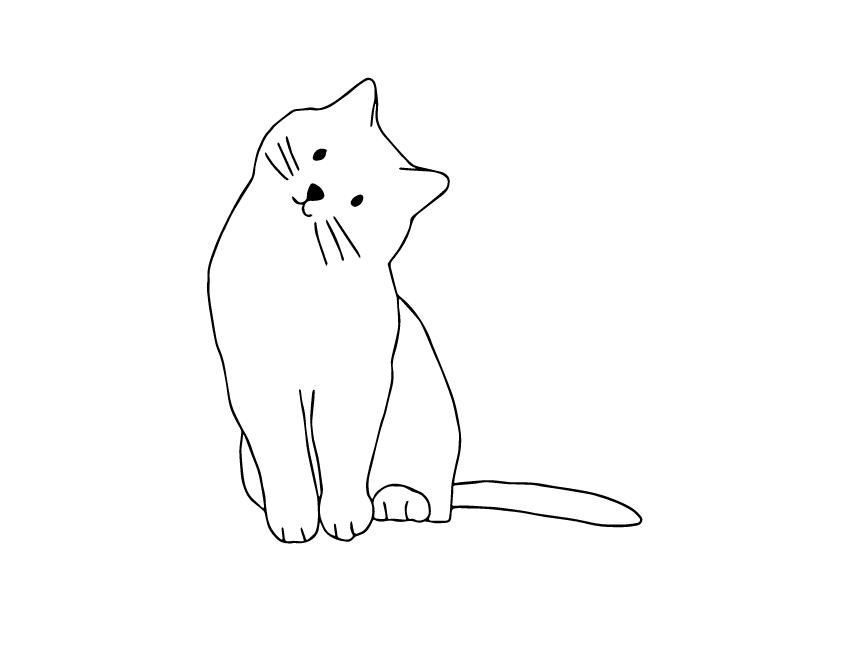
Frequently Asked Questions
How much food should i be feeding my cat to help them lose weight?
It is important to feed your cat an appropriate amount of food to help them lose weight. Generally, you should feed your cat roughly two thirds of the amount they used to eat prior to gaining weight. Monitor your cat’s weight and adjust the amount of food accordingly to ensure they are losing weight.
What kind of treats are best for cats trying to lose weight?
When it comes to helping your cat lose weight, the best treats are low calorie, high protein options like freeze-dried chicken or fish. Try to avoid treats that are high in sugar or starch, as they will make it harder for your cat to reach their weight loss goals. Additionally, look for treats that are high in fiber to help your cat feel full while they’re still getting the nutrition they need.
Are there any other ways besides exercise to help my cat lose weight?
Yes! In addition to exercise, there are several steps you can take to help your cat lose weight. Start by feeding your cat a balanced diet and monitor the amount they eat. Cut back on treats and offer healthy snacks instead. You can also switch to a low-calorie, high-fiber diet specifically designed for weight loss. Finally, talk to your vet about your cat’s weight and see if they recommend any additional steps.

